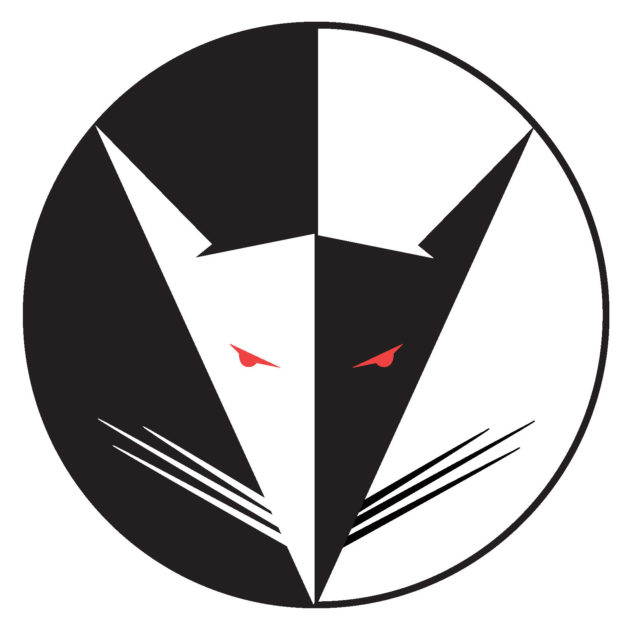“To gather, celebrate, present and preserve the history and cultures of sheepherding in Idaho and the West.” This is the mission of the Trailing of the Sheep Festival. For the past 28 years, a festival dedicated to the sheep industry has taken place in Hailey and Ketchum, Idaho, in the month of October.
Originally founded by John Peavey in 1996 as an event to show the townspeople the tradition of moving sheep off the range every year, the Trailing of the Sheep Festival attracts numerous individuals, vendors and tourists alike, from literally all around the world.
Vendors from all over the state, along with surrounding states, set up booths and showcase their sheep-related crafts. From wool-felted hats, to sheep pelts, from soap to sheep cheese, and of course, lamb meat of various styles (jerky, salami, burger, etc). So many handmade items are put on display for purchase, using sheep byproducts. On the final day of the festival, a flock of about 1,500 sheep trail down the main street in Ketchum, during the Big Sheep Parade. Visitors from all over the world come to Idaho to attend this unique and educational fall festival.
At the festival, one of the booths the public was able to visit was Mountain Valley Farmstead. Various samples were given to booth visitors, who were given the opportunity to try something a little less common in the U.S. – cheese made from sheep’s milk. Sheep’s milk cheese is a product not often found in Idaho grocery stores, but can be found at the festival.

Randal and Carol Stoker, owners of Mountain Valley Farmstead, stand for a photo in front of their booth. Photo provided by Randal Stoker.
Mountain Valley Farmstead sells 100% sheep cheeses from their booth. Randal and Carol Stoker formed Mountain Valley Farmstead in 2014, located in Carmen, Idaho, after being inspired on a trip to Italy where they sampled various sheep cheeses. The multitude of benefits of sheep cheese makes it a niche product, which intrigued the Stokers. Sheep cheese is easier to digest, compared to cheese from cows and even goats, due to the different proteins and the bacteria that aid in the conversion of sheep’s milk into cheese. The bacteria consumes most of the lactose, making sheep cheese a good option for those who are lactose intolerant. Sheep cheese is high in protein, due to the fact that sheep’s milk has higher whey protein content than cow’s milk, and is rich in both essential amino acids and fat-soluble vitamins. Due to sheep cheese being such a niche product, educated consumers are willing to pay more money, which then makes it possible for small sheep dairies to be profitable.
The Stokers had their first Mountain Valley Farmstead booth at the 2017 Trailing of the Sheep Festival and have been vendors at every festival since. When asked about their favorite aspect of the festival, Randal says, “We love Idaho and we love sheep. Having a cow dairy early in our married life, we much prefer working with sheep and learning from them. The Trailing of the Sheep Festival celebrates both Idaho, and sheep. Therefore, we too very much enjoy this wonderful annual celebration since we have the same passions and interests.”
Despite being passionate about the sheep cheese industry, Randal and Carol Stoker recently made the decision to sell their business; however, the buyer does hope to continue the sheep cheese business along with supporting the Trailing of the Sheep Festival. Randal and Carol are currently still selling their sheep cheese inventories until either there is no longer any available or until the buyer’s cheese is available. Sheep dairies are not easily stumbled upon within the U.S., so it’s great that the Idaho sheep cheese business will continue operating in some form. “It is estimated that there are fewer than 200 sheep dairies in the U.S. American consumers are just now discovering the wonderful benefits of sheep cheese. Although sheep dairying is still economically challenging, it does show a great deal of promise for future growth for those willing to work hard and love what they do,” Randal says.
SuDan Farms, owned and operated by Dan and Susie Wilson, out of Canby, Oregon, produces quality, grass-fed Border Leicester lambs. Visitors of their booth got the chance to taste samples of lamb jerky, pepperoni and salami. Dan stated that every year SuDan Farms sells 1,000 lambs, butchering every week of the year. His lambs are sold to local restaurants and farmers' markets. The Wilsons have a passion for producing quality meat products that the public keeps coming back to enjoy.

Dan Wilson, owner and operator of SuDan Farms, prepares samples of lamb jerky, pepperoni and salami at his booth. Photo by Madison Crawford Vargovich.
Along with all of the handmade crafts and food goods, traditional sheep wagons are displayed for the public to view and get a feel for how sheepherders live when tending to sheep on the range. Sheep herding, a profession that has been around for thousands of years, is known as the second-oldest profession in the world. Large sheep operations would, and sometimes still, take their flock to the summer range and the sheepherders camp alongside the sheep for months. During this time, living in a sheep wagon, sheepherders tend to sick or injured sheep, keep predators away and move the flock to new grazing areas.
Ben Oneida, a grandson of a Basque sheepherder, has attended the Trailing of the Sheep Festival for 13 years, displaying his family’s restored 100-year-old sheep wagon. In 1911, Ben’s great-grandfather moved to Shoshone, Idaho, from the Basque country, where he started up a large sheep operation, running six bands of sheep, with about 1,000 sheep in a band. The bands were run in various areas around southern Idaho, including Shoshone, Richfield, Minidoka, Sun Valley area, Galena Summit and Stanley Basin. Benito Oneida, Ben’s grandfather, ran the operation and it was successful for over 60 years. Ben stated that he looks forward to displaying the Oneida family sheep wagon every year and sharing the history, of both the sheep industry and the Basque culture, with the public. “I enjoy keeping the old sheep industry history alive. There are so many people who just don’t have a clue,” Ben shared.
The Trailing of the Sheep Festival offers a great opportunity for people of all backgrounds to come together and learn about the sheep industry and its importance in preserving this tradition. While it may not be the largest agricultural sector in the United States, the sheep industry still plays a vital role in producing high-quality byproducts such as soft sheepskin, moisturizing lotion used from lanolin in sheep wool and even soap from sheep milk. Agriculturists hope that by continuing this festival, more people will become aware of the benefits of sheep, helping the industry grow. With so many valuable products derived from sheep, the U.S. should aim to utilize this livestock more fully. As one of the world's oldest professions, sheepherding deserves to endure – so eat lamb and wear wool!

Ben Oneida, a grandson of a Basque sheepherder, displays his family's restored 100-year-old sheep wagon. Photo by Madison Crawford Vargovich.





.jpg?t=1687979285&width=640)

